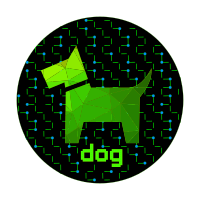
dog_agent
dog_agent is the client agent component of dog, a centralized firewall management system.
- Runtime Dependencies
- Runtime Dependencies Setup
- Build Dependencies
- Certificate Creation
- Deploy Configuration
- Install
- Run
- Logs
Runtime Dependencies
- linux 4.x+ (Ubuntu 22.04 tested)
- iptables
- ipset
- Only supports cloud public IP addresses on AWS EC2.
Runtime Dependencies Setup
- Ubuntu:
apt install iptables
apt install iptables-persistent
apt install ipset
#install https://github.com/jordanrinke/ipsets-persistent plugin
sudo echo "dog ALL=NOPASSWD: /sbin/ipset, /sbin/iptables-save, /sbin/iptables-restore , /sbin/ip6tables-save, /sbin/ip6tables-restore" > /etc/sudoers.d/dog
- Create ‘dog’ user:
mkdir /var/log/dog
chown dog: /var/log/dog
mkdir /var/db/dog
chown dog: /var/db/dog
mkdir /tmp/dog
chown dog: /tmp/dog
mkdir /tmp/erl_pipes
chown dog: /tmp/erl_pipes
Build Dependencies
- erlang 24
Certificate Creation
Each agent must have its own unique client certificate to connect to rabbitmq.
Create client certs to connect to the rabbitmq broker. One option to get you started is: https://github.com/relaypro-open/csc
Install
Use github Release archive
github.com builds releases for Ubuntu x86
Download latest release archive: https://github.com/relaypro-open/dog/releases
Extract archive to /opt/dog/
Create configuration file /etc/dog/dog.config, based on this template:
[{dog,[{enforcing,true},{use_ipsets,true},{version,"public"}]},
{kernel,[{inet_dist_use_interface,{127,0,0,1}}]},
{lager,
[{handlers,
[{lager_console_backend,[{level,info}]},
{lager_file_backend,
[{file,"/var/log/dog/error.log"},{level,error}]},
{lager_file_backend,
[{file,"/var/log/dog/console.log"},{level,info}]}]},
{crash_log,"/var/log/dog/crash.log"},
{tracefiles,[]},
{async_threshold,10000},
{sieve_threshold,5000},
{sieve_window,100},
{colored,true}]},
{sync,
[{growl,none},
{log,[all]},
{non_descendants,fix},
{executable,auto},
{whitelisted_modules,[]},
{excluded_modules,[]}]},
{thumper,
[{substitution_rules,
[{fqdn,{dog_interfaces,fqdn,[]}},
{environment,{dog_config,environment,[]}},
{location,{dog_config,location,[]}},
{group,{dog_config,group,[]}},
{hostkey,{dog_config,hostkey,[]}}]},
{thumper_svrs,[default,publish]},
{brokers,
[{default,
[{rabbitmq_config,
[{host,"DOG_RABBITMQ_HOST"},
{port,5673},
{api_port,15672},
{virtual_host,<<"dog">>},
{user,<<"dog">>},
{password,<<"PASSWORD">>},
{ssl_options,
[{cacertfile,"/var/consul/data/pki/certs/ca.crt"},
{certfile,"/var/consul/data/pki/certs/server.crt"},
{keyfile,"/var/consul/data/pki/private/server.key"},
{verify,verify_peer},
{server_name_indication,disable},
{fail_if_no_peer_cert,true}]},
{broker_config,
{thumper_tx,
{callback,{dog_config,broker_config,[]}}}}]}]},
{publish,[{rabbitmq_config,default}]}]},
{queuejournal,
[{enabled,false},
{dir,"/opt/dog/queuejournal"},
{memqueue_max,10000},
{check_journal,true}]}]}].
Create /etc/dog/config.json based on this template:
{"environment":"*","group":"DOG_GROUP","hostkey":"UNIQUE_HOST_KEY","location":"*"}
Build Release Deploy
$ rebar as public tar
copy tar to system, extract to /opt/dog_trainer
Run
- Systemd(Ubuntu+)
cp config/dog.service /lib/systemd/system/dog.service
systemctl enable dog
systemctl start dog
Logs
/var/log/dog/